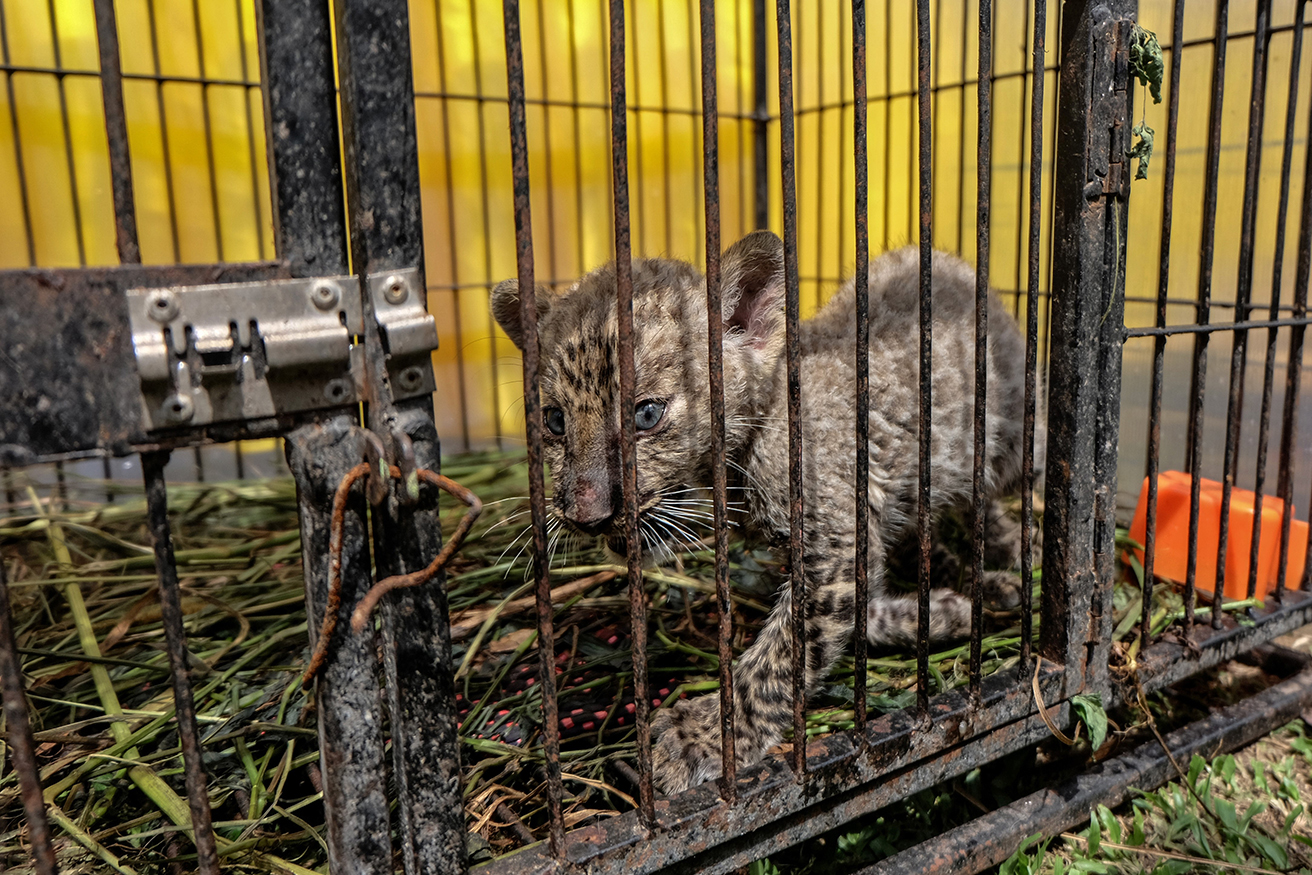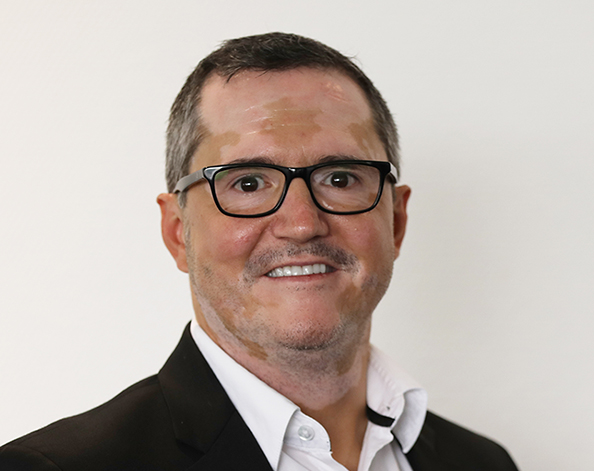Receive Focus insights straight to your inbox
LISTEN TO PODCAST
Rob Campbell (United for Wildlife), Dr. Tim Wittig (Financial Task Force) and Investec's Gerald Byleveld and Tanya dos Santos delve into the mechanics of illegal wildlife trafficking and what it will take to clamp down on this highly syndicated crime.
Understanding the scale of the problem
Illegal killing and trading of wild animals is a global crisis, with species being hunted to extinction for their horns, skins, and teeth. Due to its abundant wildlife, South Africa has become a global hotspot for poaching syndicates, with rhino, lion, elephant, and pangolins the most prolific targets.
However, wildlife crime is a far more destructive and pervasive force than many believe. According to a study by US and UK scientists, quoted by the BBC, at least one in five vertebrate species on Earth are bought and sold on the wildlife market.
These astonishing figures far exceed previous estimates and highlight the extent of the global problem, with illegal wildlife trade (IWT) tracked to diverse regions including the Andes mountain range, Amazon rainforest, sub-Saharan Africa, South-East Asia and Australia.
In fact, illegal wildlife trade is currently a leading cause of animal extinction, together with loss of habitat due to land development. But the ramifications of the illicit trade isn't confined to conservation. It impacts a country's economic health, and it's peoples' well-being. The recent links between IWT and China's coronavirus being a case in point.
The Financial Action Task Force (FATF) has conducted a new study to provide guidance to countries on measures they can take to combat money laundering from the illegal wildlife trade.
60%
1 in 5
86%

Africa accounts for 70% of illegal wildlife trade. This cat was seized in Indonesia, a long way from its African home.
Investec head of group Sustainability, Tanya dos Santos, and United for Wildlife programme manager, Rob Campbell, on how financial institutions, government and law enforcement are joining forces to thwart the illegal wildlife trade.
A coordinated response to get the upper hand
The world's best opportunity to combat IWT is to create a community of interested parties that can collaborate to stymie the movement of illegal wildlife products from source to destination via commercial transport routes, and halt the financial flows associated with this illegal trade.
To this end, The Royal Foundation, spearheaded by HRH The Duke of Cambridge, established a Transport Taskforce in 2016 and, more recently, a Financial Taskforce, both operating under the United for Wildlife banner.
“The initiative aims to create a platform for impact by bringing together private, public and third-sector partners that can work individually and cooperatively to reveal, disrupt and prevent illegal wildlife trafficking,” explained United for Wildlife Programme Manager, Rob Campbell.
“Our ambition is to make it impossible to use private-sector infrastructure to facilitate the financing and transportation of IWT products. It is also vital to combine intelligence from the transport and financial sectors to connect, intercept and hopefully bring down the wider criminal network.”
1 million
892
12 tons
Bringing the right players together to share intelligence
To date, there are 38 signatories to the Financial Taskforce, including three South African banks, namely: Investec, ABSA and Standard Bank. But given the scale of wildlife pillage that happens out of Africa, particularly Southern Africa, there's an urgent need for more financial institutions to get involved.
At the January 28 meeting facilitated by United for Wildlife, and hosted by Investec, there were a number of financial institutions who showed interest in becoming signatories, and post the meeting Grobank Ltd, became the latest member.
Frances Craigie, Chief Dir of Enforcement at the Dept of Environmental Affairs commented: "I’m very excited because we’ve been doing this work for such a long time and when we meet it’s always the same people. What we need are new players and that’s what we're seeing with the financial sector getting involved. They’re coming in and saying they’ve got something to add and contribute to what we are doing. We’ve been talking about collaboration for so long, but now we are actually seeing it."
Gerald Byleveld, Investec's Group Money Laundering Reporting Officer, explains that they look for numerous red flags when it comes to IWT, including transactions that don't support a client's business model, and large cash deposits, especially among clients who own game farms.
Byleveld says that in addition to screening clients against criminal databases to reduce fraud risk, Investec's intention is to incorporate additional lists that identify poachers and traffickers, such as those from Wildlife Trusts.
However, more can and will be done to embed IWT into the bank's systems and processes to better detect suspicious activity linked to wildlife crime, and hopefully reduce the knock-on effect it has on the South African economy through its impact on tourism and job creation in the wildlife industry.

There are opportunities to leverage technology and integrate mixed media into our analysis to potentially associate clients with reports on IWT cases.
China key to UFW taskforce effectiveness
Since their inception, the taskforces have grown from 12 private sector companies to over 150, which represent the global shipping, airline, and financial industries.
Over the last four years, United for Wildlife has also established a global footprint that today includes government bodies, law enforcement and NGOs, and in 2019 secured an important participant in the form of its first Chinese bank.
Wildlife trafficking was also included as a priority by the Financial Action Task Force (FATF), which is currently under Chinese presidency until July 2020.
“Gaining support from China was the final piece in the puzzle for us. The strength of these associations gives United for Wildlife the soft power to lean on other governments to affect change. Adding the Chinese-led FATF to the collaborative efforts already underway within various global industries and sectors should prompt more governments to take action and allocate additional funds and resources to combat the issue,” suggests Campbell.
David Fein, the Vice-Chair of the United for Wildlife Financial Taskforce, says that to date, the taskforce's efforts have supported over 70 investigations, contributed to 18 trafficker arrests, intercepted 108 shipments and played a key role in disrupting a major international ivory, rhino horn, and heroin syndicate in East Africa.
The United for Wildlife programme also helps to facilitate innovation in the fight against IWT with the use of modern technologies. “For example, Taskforce members are involved n a project at O.R. Tambo International Airport to develop a scanning system that can detect ivory and rhino horn, which would be a first in the world,” reveals Campbell.
.jpg)
By going after wildlife smugglers, we can also pursue other crimes that are much higher on countries' national security radar, like terrorism and drug smuggling.
Fein explains that illegal wildlife trade is the so-called 'soft underbelly' of transnational crime. "It operates within the same framework, the same scale and with the same players who commit other transnational organised crime. The risk-benefit ratio for illegal wildlife trafficking has until now favoured the traffickers. That’s a problem, but we also see it as an opportunity because there's already a lot of intel being captured on the ground, it just needs to be handed up to the right channels."
"From the meeting, there was a really positive response from banks, conservationists and law enforcement wanting to collaborate. There's obviously a lot more than still needs to be done, and time isn't on our side, but progress is being made," said a clearly upbeat Campbell post the United for Wildlife meeting.
Coronavirus traced back to pangolins
The endangered pangolin that carries the title of the world's most trafficked animal, might now be the recipient of another dubious accolade.; the species that spread the deadly nCoV-2019 virus from animals to humans.
According to a study by the Baylor College of Medicine in Texas and confirmed by the South China Agricultural University- DNA analysed from 21 Malayan pangolins is "a near-perfect match for the current outbreak of the coronavirus", says a Daily Maverick article.
The article continues: "It is probable that the virus originated in bats, with pangolins being the vector into humans. In past epidemics, vectors have been pigs, chickens, ducks, and camels."
To date, the pandemic has killed over 1,000 people worldwide. In response to the links between wildlife trade and the latest outbreak, China has put a temporary ban on the sale of wildlife and its products, but many are now arguing that this is the best reason to make the ban permanent, something that China is reportedly considering.
About the author

Caroline Edey-van Wyk
Brand Editor
Colloquially known as Investec’s “storyteller,” Caroline curates and produces all the content that underpins Investec's Out of the Ordinary brand promise. She works across the business but specialises in the areas of Sustainability, CSI, Sponsorships and HR. Caroline holds a Bachelor of Journalism degree in Political Science and Broadcasting - cum laude. Before she joined Investec she was a broadcast journalist at Sky News and eNCA.
About the author

Pedro van Gaalen
Content creator, editor and freelance writer
Pedro is an experienced communicator across print and digital media platforms based in Johannesburg. He attained a communications degree from RAU (now UJ), and began his PR and marketing career in 2000 in the motoring sector. He has built a career as a communications consultant and freelance writer, offering his experience, varied expertise and diverse background to various PR agencies, corporate clients and research houses.




